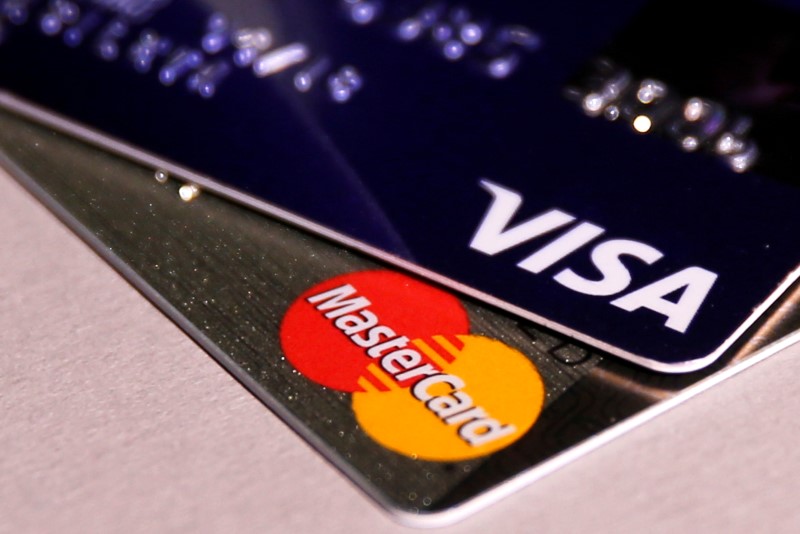Europe’s Banks are launching new product to break the Visa/Mastercard dominance
Investing.com -- The largest banks in the European Union have been quietly developing a new payment system that aims to give customers the option to abandon their Visa (NYSE:V ) and Mastercard (NYSE:MA ) cards, Bloombers News reported on Friday.
Known as Wero, this initiative is currently being rolled out across much of Western Europe, supported by 16 major banks and payment processors, including BNP Paribas (OTC:BNPQY ) SA, Deutsche Bank AG (NYSE:DB ), and Worldline SA, the report added.
This platform will allow, for example, a German customer to make payments directly from their bank account to a hotel in France, bypassing the traditional card networks.
While this may seem straightforward, successfully implementing Wero could result in losses for Visa and Mastercard, potentially costing them billions in fees from European merchants every time a consumer uses their cards.
More importantly, this development reflects Europe’s growing concern over its dependence on U.S. financial infrastructure.
The anxiety increased following Russia’s invasion of Ukraine when Visa and Mastercard swiftly suspended their services in Russia, prompting other nations to reconsider their reliance on these networks.
Martina Weimert, CEO of the European Payments Initiative, which is behind Wero, emphasized that the dominance of Visa and Mastercard gives them considerable market power.
Wero aims to provide a “European choice” that competes with these international solutions.
Despite its potential, Wero still has a long journey ahead to compete with Visa and Mastercard, which together process trillions of dollars in transactions annually.
Weimert acknowledges that describing Wero as a challenger may be premature, noting that it functions similarly to a startup, albeit with substantial backing of €500 million and an existing customer base from participating banks.
The push for Wero is partly motivated by the lessons learned from the events in Russia. In anticipation of possible future scenarios, countries are exploring their own payment systems to maintain financial sovereignty.
This is particularly relevant in Europe, where concerns about the region's dependence on U.S. payment networks have been growing.
In recent years, various national payment systems have emerged in Europe, such as Sweden's Swish, Switzerland's Twint, and the Netherlands' iDeal.
However, none have achieved the same level of ubiquity as Visa and Mastercard. Wero, which recently acquired iDeal and Luxembourg-based Payconiq, aims to fill these gaps. Its services will be accessible through its own app and through participating banks' platforms.
European attempts at establishing a unified payment system have faced challenges in the past. Initiatives like the Monnet project and the original EPI vision encountered roadblocks, leading to a narrower focus on account-to-account payments.
This change was motivated by the need for a more straightforward and cost-effective integration for member banks. Following EU regulations mandating instant payments within ten seconds, Wero plans to expand into e-commerce and in-store payments in the future.
The initiative is also positioned as a response to the growing need for payment sovereignty, which has both economic and political implications.
With the euro already used in over 20 countries, the goal is to streamline cross-border transactions, making them more user-friendly for consumers who currently often rely on American or Eastern alternatives.
Visa and Mastercard, established by banks in the mid-20th century as alternatives to cash, processed approximately $14.8 trillion and $9 trillion in transactions, respectively, last year.
They have faced criticism for their transaction fees, especially as regional competitors continue to emerge.
In the U.S., for instance, a consortium of major banks has developed Zelle, which has quickly gained traction. Similar systems have appeared in Brazil, India, and Southeast Asia, reflecting a global shift towards diverse payment methods.
While Wero faces competition from established players and new entrants, Visa and Mastercard maintain a watchful but unconcerned stance toward these emerging alternatives.
They recognize the benefits of increased competition within the European payment landscape but also understand the challenges involved in scaling a new payment solution effectively, the report added.
Source: Investing.com
